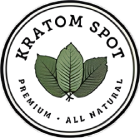
If you’ve been watching the latest FDA communications on Kratom legality, you may be concerned that banishment to the Controlled Substances list is on the horizon, which is why some states are advancing versions of the Kratom Consumer Protection Act, 2018. This important legislative draft offers Kratom potential legal protection while improving the Kratom industry and allowing researchers more time to perform quality scientific studies. While not the full approval many advocates would like to see, it is a step in the right direction.
The Kratom Question
Kratom is a tropical evergreen tree native to southeast Asia. More properly known as Mitragyna speciosa, it has enjoyed a centuries-long reputation locally for an array of health benefits. As it’s gained a loyal and growing following in Western cultures, however, it has come with increased regulatory scrutiny and a litany of misinformation and fear-mongering, most recently from the FDA. This has limited businesses involved in Kratom, left consumers largely in the dark, and slowed investment of research dollars into the potential of this traditional medicinal–effects that the Kratom Consumer Protection Act, 2018, hopes to remedy.
Public Safety Issue Or Flawed Overreach?
In the United States, the FDA has taken an aggressive stance on Kratom. Using computer-modeled simulations in the absence of quality science, outgoing Commissioner, Scott Gottlieb, has issued repeated warnings about Kratom, how it is marketed, and the danger he sees in it. His motivations, however, may be suspect, as investigations into his investment holdings and private consulting services show that his fortune is inextricably tied to that of some of the largest pharmaceutical manufacturers, even as his department refuses to acknowledge growing evidence from Kratom research and anecdotal sources that Kratom could be useful against the growing opioid epidemic. In 2016, the FDA proposed listing Kratom as a Schedule 1 controlled substance before bowing to public and political pressure and easing their stance for the time being.
At the same time that Kratom advocates were fighting to keep Kratom from banished in much the same way industrial hemp was until recently, a legitimate public health concern with Kratom surfaced. Thanks to the lack of leadership in sensible regulation by the FDA’s insistence on a hardline stance, Kratom contaminated with the dangerous bacteria Salmonella was identified from some less reputable manufacturers. To protect Kratom legality and access to Kratom by everyday consumers and protect those consumers by establishing a minimum level of industry-best practices, Kratom industry leaders and organizations developed the Kratom Consumer Protection Act, 2018.
The Road Map Forward
Designed as draft legislation to make it easier for lawmakers to protect their constituents, this act provides a set of guidelines written by and with the input of Kratom experts. Taken as a whole, it is meant to provide a path forward for responsible, adult use of Kratom in a safe and effective manner.
- Boosts Public Awareness And Confidence In Kratom – As we’ve seen repeatedly, legislators and regulators respond to pressure from the public. That’s what kept Kratom off the controlled substances list so far, and what’s likely to help keep it off. With the Kratom Consumer Protection Act, 2018, the public can see that the Kratom industry is ready to help create safer products under the oversight of a responsive regulatory authority.
- Creates A Minimum Standard For The Production, Processing, And Selling Of Kratom – Creating great Kratom products takes dedication. The standards set forth in the draft legislation provide minimum safety guidelines to help protect the public from irresponsible profiteers. It also helps ensure that Kratom is only sold to responsible adults, helping protect Kratom legality by keeping it away from children. This basic structure gives states the knowledge and power to recognize when a company’s actions are likely to cause a public health risk, but identifying the problem is not enough.
- Lays Out Enforceable Penalties For Those Who Ignore Those Standards – The ultimate goal of the Kratom Consumer Protection Act, 2018, is to protect the public. To further that goal, this act gives states real power to enforce the provisions of the law. Those who run afoul of the law face the potential for escalating fines and jail time. If it seems like this is putting a lot of initiative on the states passing this act, you’re right, and that’s the way it should be.
- Asserts The States’ Rights To Act In The Best Interests Of Their Citizens’ Health And Welfare – As has already been shown with cannabis, the states have the ability and obligation to protect the health of their citizens, both from dangerous products and misguided regulatory overreach at the federal level. States are in the best position to respond to the needs of their residents as it relates to the availability and safety of Kratom, and the Kratom Consumer Protection Act, 2018, codifies that right.
Early Adopters
So far, a handful of states have had courageous legislators take up this draft legislation for consideration in their congressional bodies. Both houses of Utah’s legislator have passed the act, and it now awaits the governor’s signature to become law. Georgia’s House Of Representatives became the latest body to take up and pass the legislation, it now will go to the Senate where early estimates have it passing handily. A handful of other states have the Kratom Consumer Protection Act, 2018, either under the review of legislative counsel, on a committee schedule, or somewhere else within their legislative process.
How Can You Help?
If you’re interested in helping protect access to Kratom and promoting higher industry standards, there are steps you can take to join the fight. First, contact your government officials about your feelings on access to Kratom by responsible adults and your state’s ability to provide for the safety of its citizenry. You can find legislative updates from the American Kratom Association that help identify where your state stands on your safety and the Kratom Consumer Protection Act, 2018. Second, when ordering Kratom, make sure you’re using reputable manufacturers and dealers who uphold the industry’s best practices. Third, while Kratom is only sold in the United States for educational and research purposes per the rules of the FDA, make sure your individual research activities are safe and responsible.
When you need the highest-quality Kratom products on the market, you know the spot to go to. Order your Kratom from Kratom Spot today.


